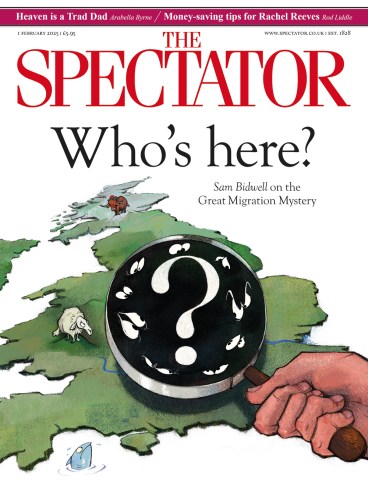
Michael Simmons has narrated this article for you to listen to.
The Pope hates gossip. In his Christmas message to his Vatican advisers last year, Francis warned that it is ‘an evil that destroys social life’. It’s not the first time he’s attacked rumour-spreading. He once compared gossips to terrorists because ‘he or she throws a bomb and leaves’.
The Holy Father’s condemnations are of particular concern for me because I was recently accused of being a ‘notorious gossip’. I vehemently reject the charge, of course, but if it were true, at least I’d be following a proud journalistic tradition. In fact, if it were not for gossip, this very magazine might not exist. The original Spectator’s founders, Joseph Addison and Richard Steele, filled the 1711 incarnation by hovering around coffee houses, picking up gossip for stories. Coffee houses became so hated by the establishment that Charles II denounced them as ‘places where the disaffected met and spread scandalous reports concerning the conduct of His Majesty and his Ministers’.
Rumour has it that the first example of gossip dates back to 1500 bc. According to the journalist Roger Wilkes, who wrote a history of scandal, cuneiform tablets describe a Mesopotamian mayor having an affair with a married woman. While the details remain unclear – Mesopotamian languages are hard to interpret – this anecdote suggests that humans have always been fascinated by the personal lives of others, particularly when it involves betrayal or impropriety. Gossip in ancient Mesopotamia didn’t just circulate privately, it was often formalised in public records, scratched into clay for all eternity.
So why do we gossip? The word itself descended from godsibb (‘God sibling’), an Old English term for women who would support a friend or relative through childbirth. The term lost its positive connotations over the centuries, as exemplified by a 16th-century Scottish torture instrument called a ‘gossip’s bridle’, a horrifying spiked muzzle which was clamped down on to the tongues of women accused of witchcraft.
Yet anthropologists believe the innate desire to gossip may not be bad for society; indeed it has some evolutionary advantages. One study argues that human society would not be sustainable if it weren’t for gossip, as for much of our history it was the only way to spread information over large groups. Another paper says that gossip reinforces and polices cultural norms and keeps members of the tribe in check. The most recent paper on the subject agrees, finding that ‘dissemination of information about individuals’ reputations leads more individuals to condition their behaviour on others’ reputations’. In other words, gossip is evolution’s way of saying ‘Don’t be a dick.’
I hear gossip’s good for our health, too. One 2012 study found that when participants were gossiping about an antisocial person or behaviour their heart rates reduced and the activity ‘calmed the body’. Another set of experiments shows that sharing rumours activates the ventral striatum – a part of the brain’s reward and motivation system – while another study found that gossipers going through tough situations had lower levels of the stress hormone cortisol than those better at keeping secrets. So gossiping is quite literally good for body, mind and maybe even soul.









Comments